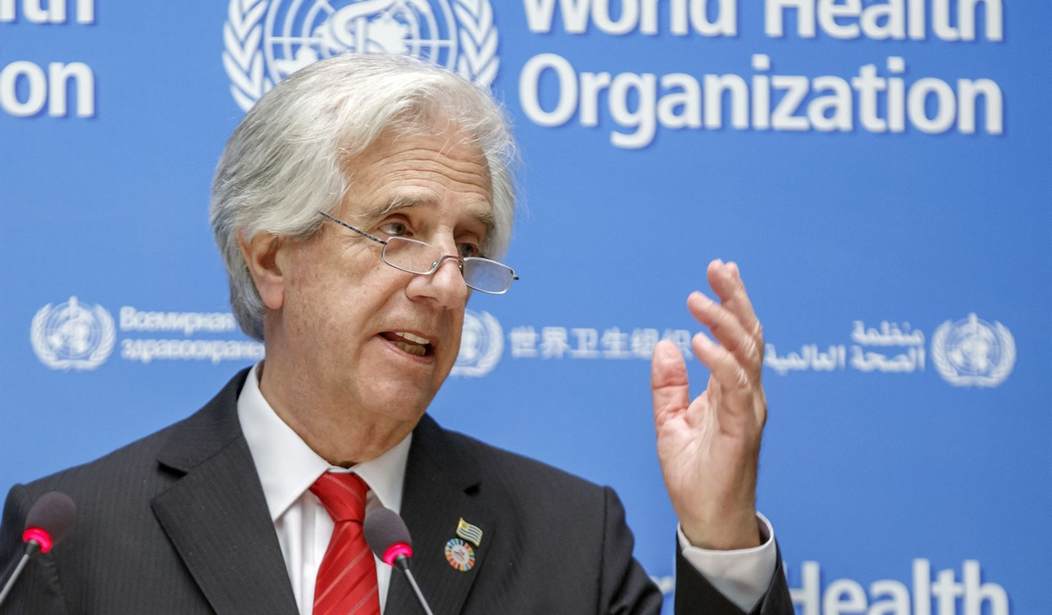Two former Directors at the World Health Organization (WHO) have written a scorching article in The Lancet criticizing their former employer for its casual and damaging dismissal of tobacco harm reduction. They are quite right to do so, and it is regrettable that more academics are not doing likewise.
Robert Beaglehole (chair of Action on Smoking and Health New Zealand), and Ruth Bonita (University of Auckland), both formerly Directors in the WHO’s efforts to tackle non-communicable diseases, take no prisoners in declaring that “tobacco control is not working for most of the world.”
The WHO claims to lead efforts to reduce the harms of tobacco smoke via its global Framework Convention on Tobacco Control (FCTC) treaty, yet the two professors have deemed it “no longer fit for purpose, especially for low-income countries.” They argue that “the missing strategy in WHO and FCTC policies is harm reduction” and that rejecting harm reduction “privileges the most harmful products - cigarettes.”
They make a plea to the historical medical journal to voice the concerns of many public health professionals around the world by urging The Lancet to “actively endorse harm reduction as a crucial strategy for reducing the health burden caused by tobacco” and to “also add its voice to calls for an independent review of WHO’s tobacco control policies.” They emphasize the urgency, stating that “millions of lives are at stake.”
The professors have good cause to make these criticisms as the WHO’s opposition to products which can help smokers switch away from combustible tobacco is widely documented. Despite harm reduction products reducing smoking prevalence in many countries, the WHO adheres rigidly to an abstinence-only “quit or die” approach to tobacco control.
Recommended
In Sweden and Norway, snus – an extremely low risk product comprising pasteurized tobacco sold loose or in small pouches to deliver non-combustible nicotine through the gum – has led to dramatic declines in smoking prevalence. In Japan, sales of cigarettes have plummeted by 47.5 percent since the introduction of far safer heated tobacco products as smokers switch en masse. Vaping products have also led to unprecedented declines in smoking where they have been allowed to be sold. Despite this success, the WHO dismisses all forms of tobacco harm reduction as nothing but an industry plot and openly advocates against these products.
In January 2020, as COVID-19 began to sweep the world, the WHO published a series of 14 tweets about the dangers of vaping, including claims such as e-cigarette liquid being highly inflammable and that secondhand vapor is lethal to bystanders. Both of these claims are entirely false. And when India banned e-cigarettes and heated tobacco in May 2021, the WHO was so pleased that it gave an award to the Health Minister who spearheaded the legislation.
The WHO has long since departed from pragmatic action at reducing smoking rates - which have remained constant for over 20 years with more than 1.1 billion current smokers globally. Instead, the taxpayer-funded organization increasingly sees its role as opposing industry at every turn, no matter the innovative risk-reduced products now being marketed as an alternative to smoking, and no matter the cost to public health.
The WHO encourages policies based on a Michael Bloomberg-funded initiative called MPOWER which excludes tobacco harm reduction entirely as an option. Yet, wherever MPOWER has been implemented, smoking rates have either risen or declined very slowly. In countries which have embraced harm reduction, smoking prevalence has declined - often quite dramatically.
Despite a growing wealth of scientific evidence pointing to the efficacy of tobacco harm reduction, the WHO carefully cherry-picks research to suit its ideology. As Beaglehole and Bonita note, “[n]either WHO nor the FCTC are grounded in the latest evidence on the role of innovative nicotine delivery devices in assisting the transition from cigarettes to much less harmful products.”
The professors should be applauded for highlighting this abject failure on the part of the WHO. Sadly, such is the vicious nature of the tobacco control industry globally, that many more academics feel the same, but dare not speak out against damaging tobacco control groupthink for fear of being hounded out of the profession.
More than 180 countries have ratified the WHO’s FCTC treaty which illustrates the significant public health benefits that could be derived if the WHO were to change course and embrace harm reduction. It is quite right that it is called out for not doing so. It should happen more often.
Martin Cullip is the International Fellow at The Taxpayers Protection Alliance's Consumer Center and is based in South London, UK.























Join the conversation as a VIP Member